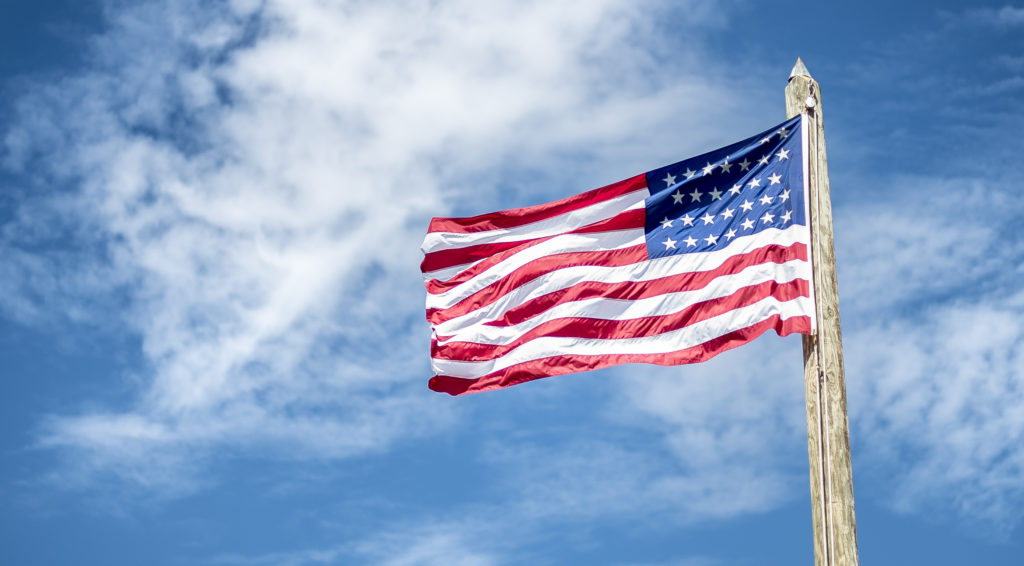
The music of Charles Ives and Aaron Copland — born in Connecticut and New York, respectively — might be among what comes to mind when considering quintessentially “American” music. But as we celebrate Independence Day this year, here’s a look at American-inspired music from a different perspective: that of composers who weren’t born in the United States.
The reasons behind each composer’s stateside sojourn varies. Some came to find musical inspiration in America’s unique culture, others to take up teaching posts at universities. All felt compelled enough by their stay to write new music that is, in many cases, deeply patriotic. All but one became citizens, spending the rest of their lives here.
Benjamin Carr: Federal Overture
https://www.youtube.com/watch?v=AdsUaCFEH6I
Born in London, Carr was just a small boy when the American Revolutionary War erupted across the Atlantic Ocean. As a young composer, he didn’t waste much time getting to the newly independent nation. He travelled to Philadelphia with a theatre company in 1793, eventually settling there and becoming a distinguished composer and prominent music publisher.
Medley overtures, like this one from Carr, were a common genre for the stage that linked popular tunes from the era with newly composed transitions. Only seven of these are still around today, with Federal Overture being Carr’s sole surviving medley overture.
Antonín Dvořák: Symphony No. 9 (“From the New World”)
https://www.youtube.com/watch?v=HClX2s8A9IE
When wealthy New York patron Jeannette Thurber offered Dvořák a job at the National Conservatory of Music in America, it was an offer he couldn’t refuse — partially because it paid more than 25 times what he was making in Prague, and partially because the reluctant composer was urged to accept by his wife Anna, who was eager to improve finances for their large family.
Dvořák balanced teaching and performance duties with time spent composing. It was at the conservatory that he met African-American student and future composer Harry T. Burleigh. Burleigh introduced Dvořák to the spirituals that would, along with Native American melodies, inform the music he composed during his stay in America, including his beloved “New World” Symphony.
As creatively fruitful as his three-year stay in America was, Dvořák couldn’t shake his homesickness, nor overlook payments that had become increasingly irregular after the economic downturn of 1893 diminished the Thurber family forture. Dvořák and his family returned to Prague in 1895.
Ernest Bloch: America, an Epic Rhapsody
When Bloch arrived in the United States at age 35 in 1916, he was hopeful he’d find the career success that he felt had eluded him in his native Switzerland. The composer’s hope was well-founded, as his career soared amidst an increasing interest in his music and important teaching appointments.
In 1926, just two years after he had applied for and received American citizenship, Bloch composed a number of works that expressed his deep love for his adopted home. With America, an Epic Rhapsody, Bloch used a collage of American melodies and folk tunes to trace the history of the country from 1620.
Even a short phrase from Bloch’s extended inscription on the piece makes his fondess for America clear: “This Symphony has been written in love for this country — in reverence to its past — in faith to its future. It is dedicated to the memory of Abraham Lincoln and Walt Whitman whose vision has upheld its inspiration.”
Irving Berlin: “God Bless America”
One of America’s most patriotic songs was penned by an immigrant. Irving Berlin arrived in the United States in 1893, his cantor father having moved the family from Russia to flee religious persectution. Berlin went on to become one of the most celebrated songwriters in American history.
But the success of “God Bless America” wasn’t immediate. Upon its radio debut in the years leading up to WWII, the backlash came from all sides. American pro-Nazi organizations claimed that a Jewish immigrant could not express a “real American attitude,” while leftist singer-songwriter Woody Guthrie released the reactionary tune “This Land Is Your Land,” accusing Berlin of painting an overly optimistic portrait of the country.
As the United States became more entrenched in the war, the song was increasingly embraced. Both the Republican and Democratic presidential nominees of 1940 used “God Bless America” as their official campaign song. Since then, the anthem has been used in rights movements, labor rallies, religious protests, sporting events and, of course, to celebrate Independence Day.
Igor Stravinsky: The Star-Spangled Banner
https://www.youtube.com/watch?v=y1taQl-wOmo
The rumor goes like this: modernist composer Igor Stravinsky performed an arrangement of the Star Spangled Banner with the Boston Symphony Orchestra that was so weird, it got him arrested. What appears to be a mugshot of the composer with a Boston police placard from 1940 only continues to fuel the rumor nearly 80 years later.
As is often the case with persistent gossip, there is some truth to the story. While Stravinsky was never arrested, he was issued a warning from Boston police, who claimed there was a law against tampering with the national anthem. Stravinsky begrudgingly pulled the arrangement from his programs.
The composer, who had emigrated to the United States in 1939, had arranged the anthem at the height of WWII out of a “desire to do my bit in these grievous times toward fostering and preserving the spirit of patriotism in this country…”
And for what it’s worth, the extended harmonies that so perturbed the Boston police will sound rather tame to post-Hendrix-at-Woodstock listeners.
Happy Independence Day, from all of us at 91Classical!